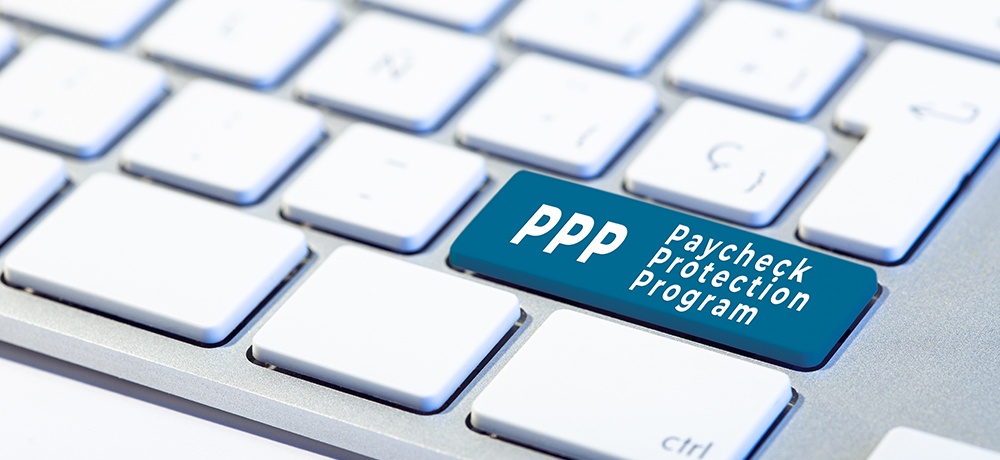SUMMARY: PAYCHECK PROTECTION PROGRAM AND HEALTH CARE ENHANCEMENT ACT

On April 21, 2020, the U.S. Senate passed the Paycheck Protection Program and Health Care Enhancement Act. This bill is expected to pass in the House of Representatives and be signed into law by the president soon.
Paycheck Protection Program
- Increases funding for the Paycheck Protection Program by $310 billion
- $30 billion is set aside for CDFIs, minority deposit institutions, small business investment corporations and intermediaries, and small community banks and credit unions (those with less than $10 billion in assets)
- $30 billion is set aside for medium community banks and credit unions (those with assets between $10 billion and $50 billion)
- Note: of the seven Hawaii’s banks that provide PPP loans, five have less than $10 billion in assets, and the other two have less than $50 billion in assets
Small Business Administration: Economic Injury Disaster Loans and Grants
- Provides an additional $50 billion for the SBA’s economic injury disaster loan program, and $10 billion for EIDL emergency grants
- Makes agriculture businesses with less than 500 employees eligible to apply for SBA economic injury disaster loans and emergency grants
- According to press statements by Leader Schumer and Speaker Pelosi, the $50 billion for EIDL loans will be leveraged to provide more than $350 billion in loans
Health Care Providers
- The bill includes $75 billion for health care providers for health care related expenses or lost revenues that are attributable to the coronavirus.
- Eligible health care providers are public entities, Medicare or Medicaid enrolled suppliers and providers, and other for-profit entities and not-for-profit entities that the Department of Health and Human Services (HHS) specifies that provide diagnoses, testing, or care for individuals with possible or actual cases of COVID-19.
- HHS will make payments on a rolling basis.
Testing
- The bill includes $25 billion to research, develop, validate, manufacture, purchase, administer, and expand capacity for COVID–19 tests.
- The funds may be used for molecular, antigen, and serological tests, the manufacturing, procurement and distribution of tests, testing equipment and testing supplies, including personal protective equipment needed for administering tests, the development and validation of rapid, molecular point-ofcare tests, and other tests, support for workforce, epidemiology, to scale up academic, commercial, public health, and hospital laboratories, to conduct surveillance and contact tracing, support development of COVID–19 testing plans, and other related activities related to COVID–19 testing.
- At least $11 billion will go to states, localities, territories, tribes, tribal organizations, urban Indian health organizations, or health service providers to tribes.
- Not later than 30 days after the date of enactment, the governor of each state, locality, territory, tribe, or tribal organization receiving funds must submit a plan for COVID–19 testing, including goals for the remainder of calendar year 2020, to include:
(1) the number of tests needed, month-by-month, to include diagnostic, serological, and other tests, as appropriate;
(2) month-by-month estimates of laboratory and testing capacity, including related to workforce, equipment and supplies, and available tests; and
(3) a description of how the state, locality, territory, tribe, or tribal organization will use its resources for testing, including as it relates to easing any COVID–19 community mitigation policies.
- $600 million is provided for community health centers and $225 million for rural health clinics.
- Funding related to testing will also be provided to the CDC, NIH, FDA, and BARDA.
- Up to $1 billion is available for testing for uninsured individuals.
- HHS must develop a COVID–19 strategic testing plan, which will:
- Assist states, localities, territories, tribes, tribal organizations, and urban Indian health organizations, in understanding COVID-19 testing for both active infection and prior exposure, including hospital-based testing, high-complexity laboratory testing, point-of-care testing, mobile-testing units, testing for employers and other settings, and other tests as necessary;
- Include estimates of testing production that account for new and emerging technologies, as well as guidelines for testing;
- Address how the secretary will increase domestic testing capacity, including testing supplies; and address disparities in all communities; and
- Outline federal resources that are available to support the testing plans of each state, locality, territory, tribe, tribal organization, and urban Indian health organization.
- HHS must also provide reports on regular intervals on demographic characteristics, including race, ethnicity, age, sex, geographic region and other relevant factors of individuals tested for or diagnosed with COVID–19 and information on the number and rates of cases, hospitalizations, and deaths as a result of COVID–19
General Provisions
- The funding amounts are in addition to amounts previously appropriated this year.
- The money is only available for this fiscal year, unless specifically designated otherwise.
- The funding is only to be used to prevent, prepare for, or respond to coronavirus.
- Money in the bill designated as an emergency requirement is only available if president designates the amounts as such and notifies Congress of the action.
- Unless specified in the text, all funds appropriated in this bill shall be made available according to the rules and authorities that apply to those accounts in the fiscal year 2020 appropriations bill.
- Funds appropriated in this bill are emergency appropriations and not be included in the PAYGO scorecard.